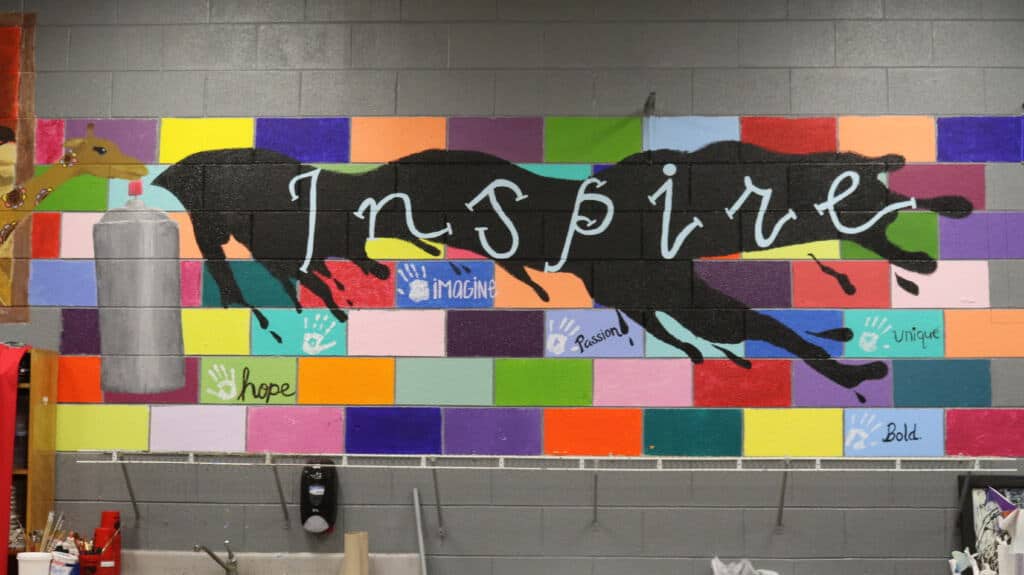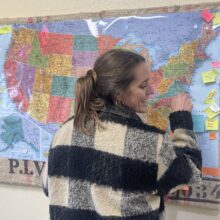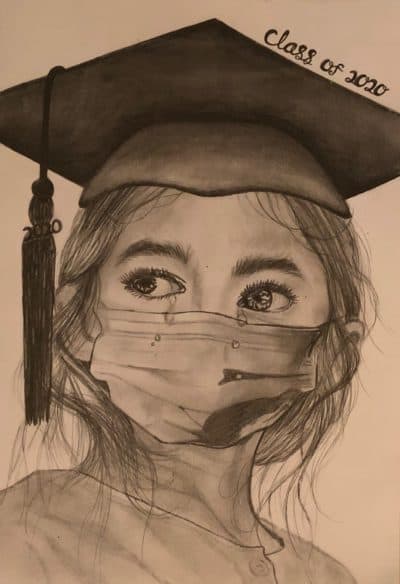Nate McGaha’s first week as executive director of the Charlotte Ballet coincided with Pat McCrory’s first week on the job as governor of North Carolina in 2013. McGaha, who hadn’t previously been involved in legislative reform, saw the issue of unemployment start to bubble up in the General Assembly.
That issue was particularly important to the dancers he worked with, as they were on 32-week contracts. He hit the ground running talking to legislators, and so began his work in arts advocacy. Through this work, he landed on the board of Arts North Carolina, where he currently serves as the executive director.
The arts industry, like so many others, has been rocked by the COVID-19 pandemic.
“As many as 20,000 people in the nonprofit arts sector alone in North Carolina are unemployed right now. We’re estimating losses at $200 to $250 million in lost revenue. There’s no takeout opera, right?”
Nate McGaha, executive director of Arts North Carolina
While the industry continues to strive to survive, there has been one recent big win for McGaha, his predecessor Karen Wells, and other arts advocates in North Carolina. Senate Bill 681 was signed into law in July 2020, officially creating an arts high school graduation requirement in North Carolina.
According to this law, “A student must complete one arts credit (music, visual art, theatre arts, dance) between Grade 6 and Grade 12 in order to graduate from high school, beginning with those students entering Grade 6 in 2022.” This was a 10-year journey that included representatives and senators from both sides of the aisle. To see more about the timeline and legislators involved, click here.


What does the law mean for North Carolina students? We talked with McGaha to learn more. Find the interview, edited for length and clarity, below.
Parker: In your own words, what does it mean to have “equitable access to quality arts instruction as part of a well-rounded education for every North Carolina student”?
McGaha: I think that it is vital that every student have access, not only to the arts, but to the arts that they need. That means providing a variety of options — visual arts, theatre arts, media arts, dance, as well music education.
Everybody deserves to have access to what they need, a variety to choose from, so that they can find their passion. I don’t think we can understate the value in the arts in education. The most socioeconomically challenged students are five times more likely to graduate from high school, and twice as likely to graduate from college, if they find themselves actively engaged in the arts, through all four years of high school.
We find time and time again, study and study again, that studying the arts via music or what have you, improves cognitive skills, improves concentration, and improves empathy. So we’re not just making smarter, more effective students, but we’re making better citizens and better people as we as we expose them to the arts and allow that to aid and be a central part of their education.
Parker: What was the biggest obstacle in getting Senate Bill 681 signed?
McGaha: I think to rephrase that, I think that the biggest obstacle to getting the graduation requirement into law was a fear of cost. So we had to make a case for the fact that the vast majority of students had access to this, and that the graduation requirement would guide those students that needed it most and who benefited most to have access to those resources.
And that the few schools that did not have any sort of arts instruction, there would now be a mandate so that they would be able to open that opportunity up.
Those students were the ones that really needed access to the arts, because of the fact that they were already faced with certain economic and geographic challenges. I think that perseverance, was really what made [Senate Bill] 681. It was the fact that Representative Carney and Representative Elmore continued to talk about this bill and continued to push for it, even in the throes of the pandemic, when we were all worrying about so many other things.
It wasn’t a struggle this year, [because] it was like, here are all these things that really need to get done. Let’s go ahead and pass this bill, and there was bipartisan support for that effort across the spectrum.
Parker: How important do you believe bipartisan support was of this legislation?
McGaha: I think it was huge. We had to make the case to both parties. The fact that Representative Carney and Representative Johnson, who worked for so long on it together in the House, garnered all of this massive support for it over the last several years in the House.
Then once Senator Ballard and Senator Woodard came out and said, we agree with this, and this is something that we need to focus on, that brought both sides of the Senate to bear on it as well. And so you had both bipartisan and bicameral support and that was really what made it an obvious choice to move forward.
Parker: What makes you hopeful for the future of the arts in North Carolina?
McGaha: I think that the entire arts sector is at a moment of reckoning and also rejuvenation. Like I said, the pandemic has devastated the arts field. It has challenged arts instruction like never before. You know, teaching theater and dance was never something that was designed to happen over Zoom or at a distance.
We have faced unprecedented challenges, but as a result, we’ve had to answer them with unprecedented creativity and unprecedented innovation.
Nate McGaha, Executive Director of Arts North Carolina
As such, I think that we have also been forced as a result of the pandemic to look very squarely in the eye of all the things that we haven’t been doing, and all of the communities that we have not been connecting to.
As we come out of the pandemic, we’re going to be stronger for those conversations and being able to address the inequities in the arts and arts education for a more inclusive creative community moving forward.
Parker: If there was anything you’d want people to know about the arts high school graduation requirement, what would that be?
McGaha: That the arts are an essential part of education. They are not a nicety, they are a necessity. I don’t think that we really appreciate the value that the arts have for engaging students, advancing students. We tend to think, these subjects are the important ones, and these other subjects are the extra ones, so you can cut off the extra and just focus on the essential. And the more and more that we see communities that try that, the more and more we see those education communities fail.
A truly successful education involves the arts in a very real and integrated way. I think that that’s going to be essential to the success of North Carolinian students as well as students across the entire country.




